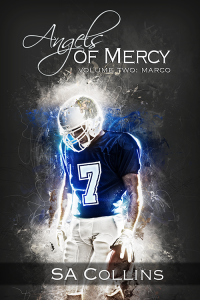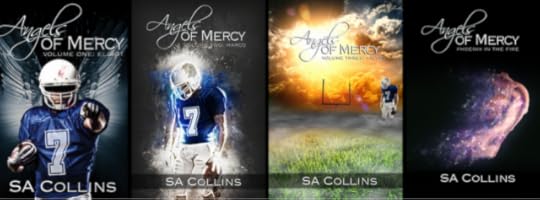Racheline Maltese's Blog, page 17
November 25, 2015
Thanksgiving sale and December preview
There are a lot of things happening and about to happen, so a quick update:
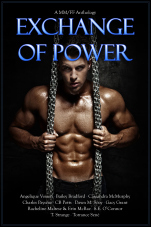 RIGHT NOW (through November 27, 2015 at midnight CST), you can get 25% off everything at Torquere Press and their YA imprint Prizm Books with code Thankful2015. You can see all of Erin and Racheline’s titles here: http://www.torquerebooks.com/index.php?main_page=index&manufacturers_id=550, but we also want to encourage you to check out Torquere’s other offerings. One of the things we love about working with them is that they publish books on the whole LGBTQ+ spectrum and have never balked at bisexual characters or including multiple orientations in our stories.
RIGHT NOW (through November 27, 2015 at midnight CST), you can get 25% off everything at Torquere Press and their YA imprint Prizm Books with code Thankful2015. You can see all of Erin and Racheline’s titles here: http://www.torquerebooks.com/index.php?main_page=index&manufacturers_id=550, but we also want to encourage you to check out Torquere’s other offerings. One of the things we love about working with them is that they publish books on the whole LGBTQ+ spectrum and have never balked at bisexual characters or including multiple orientations in our stories.
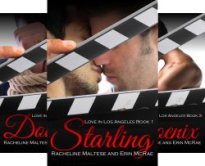 Coming up in December, there are also going to be some exciting sales. If you sign up for our once-a-month newsletter, you’ll be the first know about one of them! (Full disclosure: Most sales we don’t know about in advance, so we just post them when our publishers tell us about them, but this is a unique case and we hope will encourage you to tell your friends about our work).
Coming up in December, there are also going to be some exciting sales. If you sign up for our once-a-month newsletter, you’ll be the first know about one of them! (Full disclosure: Most sales we don’t know about in advance, so we just post them when our publishers tell us about them, but this is a unique case and we hope will encourage you to tell your friends about our work).
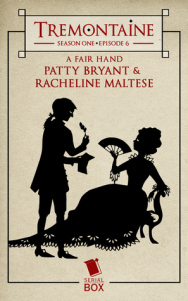 On December 2, “A Fair Hand“, Patty Bryant and Racheline’s episode of Tremontaine will hit the shelves. While it’s one of the better episodes to start with (our characters are preparing for a big event that has just made itself front and center in all their dilemmas), the truly best place to start is the beginning. Tremontaine‘s first episode remains free at SerialBox.com and Amazon.
On December 2, “A Fair Hand“, Patty Bryant and Racheline’s episode of Tremontaine will hit the shelves. While it’s one of the better episodes to start with (our characters are preparing for a big event that has just made itself front and center in all their dilemmas), the truly best place to start is the beginning. Tremontaine‘s first episode remains free at SerialBox.com and Amazon.
Sometime in December — we’re still working out the logistics — Erin and I will be doing a Blab chat sponsored by Torquere.
Sometime in December — again with the working out the logistics — Racheline will be doing an “Ask the Producer” Q&A on Twitter or Tumblr or Facebook (where do you want it?) about Tremontaine.
 And don’t forget, on December 9, Racheline will be reading at KGB Bar in NYC.
And don’t forget, on December 9, Racheline will be reading at KGB Bar in NYC.
We currently have several new works in submission or about to go into submission, with any luck, we’ll also have some new publication announcements for you soon.


November 20, 2015
At the Inkwell Reading in NYC – December 9th
 Really excited to announce I’m going to be reading as part of At the Inkwell’s annual romance night at New York City’s KGB Bar on Wednesday, December 9, 2015.
Really excited to announce I’m going to be reading as part of At the Inkwell’s annual romance night at New York City’s KGB Bar on Wednesday, December 9, 2015.
Other readers include Sofia Tate and Ursula Renee and the event is free.
Of course, I have absolutely no idea what I’m going to read yet. Any requests? Please let us know! (Erin may not be able to make this event, but that doesn’t mean she’s not fully involved in the reading decision).
As ever, books will be available for sale.
The details:
At the Inkwell reading
December 9, 2015
7-9pm
KGB Bar
85 E. 4th St., NYC
See you there!


Guest Post: Talking Queer Romance with SA Collins
Today we’re thrilled to have fellow queer romance writer SA Collins with us to talk about his new book Angels of Mercy Volume 2, Marco.
It’s a tough gig to be a writer. Whoever said, “eh, stories aren’t so hard to make up …” yeah, that person is no writer.
When you decide to write, usually the first thing you have to decide is what you want to write and why. Oddly enough, I’ve figured out that it’s the why that is more important than the what.
I am a gay man who, after the half-centennial mark, is happily married to a lovely man, with children and grandchildren in the mix, and who lives in the San Francisco Bay Area – admittedly a bastion of liberalism the likes of which exists nowhere else I can think of. We live in a proverbial bubble.
Queer people have had to define our lives because, by and large, we’ve been excluded from the heteronormative party. Our sense of community is built upon finding others like ourselves who have had to carve out their own slice of happiness, defining it to meet their expectations and hopes, be they couples, throuples or polyamory in scope. We embrace what makes us who we are – outliers and progressives (for the most part) who are only seeking to find some happiness in our lives.
Our stories are not like the heteronormative tales of love and desire. They may have common threads, common factors between them, but it is in how we apply those aspects of our lives and the rules we build to support them that separate us.
I’ve made no bones about what I think of the M/M romance as a genre. It is an industry unto itself and is self-perpetuating. It was built by our straight allies as an extension of the romance novels from antiquity through the modern era and applies the same confining tropic rules and genre expectations that have little to do with how queer people live.
I am not writing to disparage that part of the industry. Those straight women allies and the gay men who happen to follow those works can have at it. More power to them. To my way of thinking, that genre walks a very fine line of cultural appropriation from the queer community but constrains it with heteronormative expectations that only recently have become part of the gay vernacular as marriage equality quickly became a real possibility. Indeed, there is much talk within the community of whether we want to be part of that equality party in the way our straight counterparts are having it. Some do want that. But there is a vast collective of queer men and women who do not.
Who is writing their stories?
You see, from the (Wrote) podcast I run with my co-hosts (Vance Bastian and Jayne Lockwood) we had a very intense conversation with Erin and Rach about how the M/M romance genre doesn’t allow for the queer factor to play out as it does in life. Because of this, huge swaths of our stories are simply not being produced.
The argument is made that “well, that’s not what romance is.” Really? As queer people, we are VERY good at subverting what “is” in favor of what we “want” it to be. That is one of our strengths: progressivism and a keen eye to bending rules and remaking them to suit our purposes. Those stories need to have their time in the sun.
Many might say – “But that won’t sell.”
To those straight women whose heteronormative expectations have been hammered into us time and again (Disney Princesses, anyone?) on what constitutes a happy ending, I would probably agree. I would argue, however, as a queer person that our queerness would say otherwise. HEAs (Happily Ever After’s), by our standards, can mean so many other things. I think that it is a matter of Queer Romance not finding it’s audience yet – an untapped market, if you will.
Who says you can’t have a threesome and make it work? I know of several such pairings, with rearing children involved, even. Doesn’t mean they don’t meet their fair share of obstacles in just eking out their own form of familial happiness, but that can be excellent fodder for a ripping story. Where are those tales?
During the podcast we came up with a term we coined, saying we need to start making “Queer Romance” a thing, a form of storytelling that subverts the standard, owning our queerness blatantly and willingly, purposefully redefining what an HEA can mean. We commented in the show that an HEA should be a moving target.
Think of the powerful possibilities that open up with that thought: a form of writing that speaks to our own as we see ourselves, but where the bindings of what constitutes a romance are turned on its head.
Some may quip, “Well, then, it’s not romance.” I would reply, “You’re damned right it’s not. Because it’s queer and that’s the determinant factor here. We are redefining it for ourselves.”
To be honest, it would be an artistic endeavor to begin with – a slow burn. There is no proven track record for sales or marketability. However, it is also evident from just the discussion I’ve had with Rach and Erin that, as queer people, there is a huge element that isn’t written about when it comes to our relationships. We all feel this drive to push the envelope with each of our works, so let’s make it a thing.
I call on my fellow queer authors to join the bandwagon and start writing Queer Romance. It doesn’t have to replace what you do now. But a work here, a work there, will add to the Queer Romance coffers over time. Start with an inward “fuck this shit, I’m writing what this story needs to be” and meaning it. Write real page-turners where HEA is not a given, or if it is, it may not be what you’d expect.
Queer, I know. But that’s sort of the point.
I’ve determined that’s what I write about in my queer relationship stories. I don’t want rules. I want to fling shit around and see what sticks. See what works. Give voice to characters that aren’t so neat and formulaic. Fuck black and white. I want HUGE swaths of grey. I want our EAH (you’ll see what I mean below).
I am reminded of the words from my musical muse, Jay Brannan, from a song that addresses this very concept. The song is called Ever After, Happily (EAH, get it?). I was so pleased that when I pitched to him that his works inspired my own, that he allowed me to quote his lyrics in my book. It is an honor I am still in awe of – one queer artist supporting another.
“Ya know what? Go for it. I trust you.” What do you say to something like that? Truly, I was overwhelmed with his generosity.
I admire him greatly. Our queer storytelling is in very capable hands with him. This is Jay’s take on the realm of romantic fairy tales – it’s pretty spot on from a queer’s perspective:
Well that’s the way the fairy tale goes
Boy meets girl and they wed with roses
But that’s not the way it seems to be
And I’m pissed that they lied to me
Cuz boy meets boy, and boy runs away
Or girl meets girl, and she’s afraid to stay
We end up home alone watching Court TV
Not living ever after happily
But it is the last words of the song that perfectly capture the element of what I believe queer romance is all about. It is these words that Jay allowed me to quote in my own work (Angels of Mercy). It is the foundation of what I write no matter the subject matter of the story. This is the very essence of what I see as the seed of Queer Romance.
Starting today
We’ll tell the story my way
The King of Imperfection
Takes back the Prince of Mistakes
What say you, fellow queer authors? Want to start something and define it for ourselves? We’ve done it before – the Violet Quill gang of the 80s and 90s wasn’t that long ago. It’s what we do. It’s what we’ve always done. I am doing it now with Angels of Mercy. Writing about us as we are, unfettered by tropic rules and expectations. I may have a happy ending, but the definition of what that means is a mystery until it’s written.
We need to reclaim the mantle of telling how our Kings/Queens of Imperfection take back their Princes/Princesses of Mistakes.
Queer Romance, it’s a thing.
SA Collins hails from the San Francisco Bay Area where he lives with his (legal) husband, their daughter and wonder of all wonders, a whirlwind of a granddaughter. A classically trained singer/actor (under a different name), Mr. Collins knows a good yarn when he sees it.
Mr. Collins specializes in character study work. It is more important for him that the reader comes away with a greater understanding of the characters, and the reasons they make the decisions they do, rather than the situations they are in. It is this deep dive into their manners, their experiences and how they process the world around them that make up the body of Mr. Collins’ work.
Angels of Mercy – Volume 2: Marco (The Fall of the Sforzas) will be out 11/30 – don’t have links yet for it as I haven’t built them (I am off all next week from work for the holiday so that’s when I’ll be digging in and getting them out there – I’ll send them to you both then).
“Elliot Donahey is the love of my life.”
Those words become a lightning rod for Marco Sforza, the man who seemed to have it all – looks, charm, money, a certain degree of local fame as the star quarterback of Mercy High – but when his teammates beat his boyfriend to the brink of death, Marco will have to learn what “standing by your man” truly means.
Angels of Mercy – Volume Two: Marco, picks up the timeline from the climatic ending of Volume One. How will these boys cope with Elliot recuperation as well as find a way to bring justice for the heinous crime committed against Elliot? Deception, lies and intrigue begin to thread their way into the boys lives as they struggle to just hold onto one another. All is not quite what it seems as we reach yet another climatic ending that will turn their whole world upside-down. The hate crime Elliot suffered was just the beginning of their woes. Is Marco and Elliot’s love for one another strong enough to see them through? Read Angels of Mercy – Volume Two: Marco to find out.
Angels v1 – published 4/1/15
Angels v2 – TBR 11/30/15
AoM – Phoenix In The Fire (companion to V2) – TBR 12/31/15
Angels v3 – TBR (Spring 2016)
Other releases in the Angels series – Marco’s Backstory Volumes:
Diary of a Quarterback Part 1 (Late Winter 2016)
Diary of a Quarterback Part 2 (Early Spring 2016)
ANGELS OF MERCY – Volume One: Elliot (His Summer of Love) – [first of a series]
Pages: 540
ISBN: 978-0692399736
ASIN: B00V2II5JC
Buy Links for V1:
SACOLLINS STORE: http://www.sacollins.com/store/index.php?catalog/all/-/date/1
Amazon – http://tinyurl.com/p6ykrms
AllRomance – https://www.allromanceebooks.com/product-angelsofmercyvolumeoneelliot-1766747-145.html
BarnesAndNoble – http://www.barnesandnoble.com/w/angels-of-mercy-volume-one-sa-collins/1121493073?ean=2940151831222
Smashwords – https://www.smashwords.com/books/view/529495
On the cusp of his senior year at Mercy High, Elliot Donahey, an out but terminally shy gay young man who keeps to the shadows – never wanting to be seen or noticed – suddenly finds himself in the arms of the highest profile jock on campus, local star quarterback, Marco Sforza. Their lives, and those closest to them will never be the same.
Set against the backdrop of competitive sports, this character study work (the first in a series) deep dives into the lives of these young men who each must “play the game” so Marco can play the game he loves. They are just trying to find some small slice of happiness to call their own amidst their hellish final year of high school.
Author’s Note: Angels of Mercy is first and foremost, a series of character studies. A great deal of it is inner-monologue. Elliot will pause the action, will break momentum as he grapples with his world – all the while flipping a finger to the fourth wall. He knows you’re there. It was far more important to me as its author (and a gay man) that the reader come away with the whys of Elliot’s choices in how he navigates his often tumultuous world. The same can be said of Marco (his jock boyfriend) who will pick up the tale with Volume Two (to be released the summer of 2015).
I’ve read much queer literature and what I find rather interesting is that for the majority of it, very little is written about the character’s headspace. When you live in a world where you constantly have to be vigilant as you navigate through, it can make for some very powerful storytelling. That is my goal in writing these boys’ lives. I want the reader who may not be queer themselves to come away with what it might be like to be in a gayboy’s shoes – constantly polling and pulse-checking your world because your very survival depends upon it. All of that while you hope, you secretly pray, that you’ll find someone who will see you too and find they can’t live without you in their world. A small slice of happiness to call your own. And though you do everything to keep to yourself, you may still run into those who find your very existence threatens who they are and how they think the world should run. I pull no punches with this work. They are hormonally charged eighteen year old young men who are sexually active. While the sex is present in the work it is not gratuitous in that the main character does evolve from his physical intimacy with his high-profile boyfriend. It is not a genre romance read either, though it has a very strong romance threaded in the work. These elements bring a light to their relationship that attracts all the wrong attention.
In a time where more queer youth are coming out to their teammates and their loved ones, I find that work of this nature is both timely and necessary to tell. I hope you’ll find it as interesting and provocative a read as I believe it is.
Our Voices. Our Lives – as we live them.


November 19, 2015
RWA Update
 Some months ago, I made a bit of noise about some of the frustrations I was having with RWA. Doing that helped me connect more with other RWA members. It also ticked some people off. Most importantly, it put me in the position of either needing to quit RWA or do something to help make it more welcoming to authors like me — writers who have often felt they were in a second RWA because of the race and/or gender and/or disability of themselves or their characters.
Some months ago, I made a bit of noise about some of the frustrations I was having with RWA. Doing that helped me connect more with other RWA members. It also ticked some people off. Most importantly, it put me in the position of either needing to quit RWA or do something to help make it more welcoming to authors like me — writers who have often felt they were in a second RWA because of the race and/or gender and/or disability of themselves or their characters.
Recently, I’ve been serving on the RWA’s ad hoc diversity committee. Our findings were shared with the board at their most recent meeting, and the acceptance of these and the move for change has been impressive. A brief summary of this has appeared in the recent RWA eNotes, and I expect there will be more news on this in the future. But I am looking forward to a more inclusive and accessible RWA that recognizes the diversity and intersectionality of its members.
On the local level, I have also been elected as one of the Vice President’s of my local chapter, RWA-NYC. I’m looking forward to a lot of hard work and an immersive learning experience that in the end hopefully helps us all write — and sell — more books and more types of books.
I have many friends who have left the RWA, some because of these issues. I’m not ready to say, “it’s time to come back,” but I hope you’ll keep on eye on this process and that we’ll do a good enough job that you’ll consider it in the future.
(P.S., while these comments are about my activity with RWA and RWA-NYC, I’m speaking only for me).


November 17, 2015
Fanfiction: Is that like… cancer?
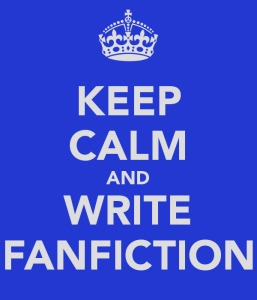 There’s a joke in Starling (okay, I think it’s Starling, when you’re writing a six book series it gets hazy sometimes), where Gemma is talking to Alex about fame, but every time she says the word, she whispers it.
There’s a joke in Starling (okay, I think it’s Starling, when you’re writing a six book series it gets hazy sometimes), where Gemma is talking to Alex about fame, but every time she says the word, she whispers it.
Alex responds, “Is that like… cancer?”
The moment comes from an event in my own life, almost 20 years ago. A friend and I were in a Barnes & Noble discussing fanfiction. New to writing fic, and feeling a little weird about my foray into Star Trek: Voyager fanfic, I whispered the word.
She looked at me, her face already twitching with sardonic mirth and said what Alex says. “Is that like… cancer?”
Both of us, having grown up in houses where cancer was a topic, but also a topic undiscussed, laughed like loons. The thought of that conversation, and her gentle mocking, still makes me smile.
Lately, I keep winding up in conversations about fanfiction. No, it’s not, by its nature plagiarism (something which I wound up in a heated discussion about recently after a hideous plagiarism scandal in Romancelandia). And no, it is not, by its nature, something “real” writers don’t do (ask anyone who has written for Doctor Who in the last decade if they’ve ever written fanfiction). And no, it’s not, by its nature, just for practice (although it can be, if an individual wants it to be).
Erin and I are both authors who have written fanfiction. Sometimes we still do. I personally don’t view it as a lesser form than non-transformative works. Granted, I don’t have the time for it that I used to, now that people pay me to make up stories. But it’s not a secret, and I’m not ashamed of it.
Accusing me of having a background in fanfic (which happens occasionally) is a little like accusing me of being queer. Because, honey, I know. I mean, I also have a background in journalism, but no one ever gets weird about that.
Professional writers have a range of relationships with fanfic. Some of us write professional and in fan capacities. Some of us used to be fan writers. Some of us were never fan writers, and some of us are unfamiliar with, or opposed to, fanfiction.
But for me, it’s just a thing. I also enjoy dark chocolate, play the guitar exceedingly badly, and really, really want to talk to you about visual symbolism in pretty much every television show I have watched. Ever.
It’s also this, which is just some of what I said to Lev Grossman in 2011 for his article on fanfiction for Time:
“For me, it’s sort of like an acting or improvisation exercise. You have known characters. You apply a set of given circumstances to them. Then you wait and see what happens…. We don’t own nonfictional people, and at the end of the day, I don’t think we can own fictional ones either.”
So, despite my moment of absurdity in a B&N sometime in the 1990s (weep with me, oh fellow crypt keepers), it’s not something I whisper about. Then again, I don’t whisper about cancer either.
That’s what happens when you get older, you get less shame. As the years go on, you tend to wind up knowing people who have to face off with cancer. Fanfic seems about as common, and a hell of a lot more pleasant.
So hey, I’m a pro writer who writes fanfic. I’m also a fan writer who is a pro. And it’s not weird for me, so it probably doesn’t have to be weird for you.
If you ever want to create transformative works about the stories Erin and I write, we’re cool with that and extraordinarily flattered. We also won’t come poking into what you’re doing — just like reviews are for readers, not writers, we pretty much view fanfic the same way.
Just like everyone deserves a happily ever after, we also believe everyone deserves as many instances of once upon a time as they want.


November 11, 2015
Cover Reveal: A Fair Hand
Today is Tremontaine day. Every Wednesday is, because that’s when we release new episodes in ebook and audio. Today we’re up to episode 3, Joel Derfner’s “Heavenly Bodies” — if you need to get caught up, you can subscribe at SerialBox.com or pick up episodes wherever you prefer to buy ebooks and audiobooks.
Today is also a Tremontaine day around here, because we can now reveal the cover for the episode written by Patty Bryant and myself, “A Fair Hand.”
Episode 6 – A Fair Hand
Tess shows her stuff. Micah ponders society.
The annual Tremontaine Ball is always the event of the season. But now, with the family fortune at stake, Diane assembles her guest list with all the cunning of a general preparing a battle plan. As the chocolate merchants of the City, led by the Balam family, debate how to respond to the Duchess’s unprecedented invitation, Micah, eager to help her family, makes plans to crash the party. And Kaab finds that learning from Vincent Applethorpe is a painful experience.
This episode is brought to you by Racheline Maltese and Patty Bryant, who cordially extend you an invitation to the Ball.
A Fair Hand is part of the 13-episode serial, Tremontaine, presented by Serial Box. This prequel to the cult classic Swordspoint is brought to you by the collaborative effort of a team of writers under the creative direction of Ellen Kushner herself.
Join the dance of swordplay and scandal, week after week, on SerialBox.com!
“Sharp blades and even sharper wits abound! Delicious new adventures await fans in this welcome return to the world of Swordspoint.”
– Jacqueline Carey, New York Times Bestselling author of the Kushiel’s Legacy series
“Lovely! Beneath a froth of silk and lace Tremontaine is finely muscled, rippling with skill and promise.”
– Nicola Griffith, author of Hild
“More Tremontaine stories? YESPLEASE. Tremontaine stories by some of my favorite, excellent writers? HELLA YESPLEASE. I can’t wait to read them all! ” – N. K. Jemisin, author of The Fifth Kingdom
“A pure delight full of sparkling characters that match equally dazzling wits and swords. If you’ve visited the world of Swordspoint before, you’ll be delighted to return; if it’s your first time, you’ll be welcomed in style. I can’t wait to read more myself!”
– Naomi Novaik, author of Uprooted


November 5, 2015
Valerie’s Letter
 Every year on November 5, I post “Valerie’s Letter” from V for Vendetta somewhere. I first came upon it in the graphic novel my sophomore year in college (1991/1992) because of someone I was dating. Its cadence awed me, and it’s stayed with me all these years because of the way it’s become a direct emotional shortcut to the anxieties of being a teenager during the Reagan and Thatcher years and their aftermath. I mean, I first read this thing when I was going to ACT-UP protests in DC, and the police all wore latex gloves.
Every year on November 5, I post “Valerie’s Letter” from V for Vendetta somewhere. I first came upon it in the graphic novel my sophomore year in college (1991/1992) because of someone I was dating. Its cadence awed me, and it’s stayed with me all these years because of the way it’s become a direct emotional shortcut to the anxieties of being a teenager during the Reagan and Thatcher years and their aftermath. I mean, I first read this thing when I was going to ACT-UP protests in DC, and the police all wore latex gloves.
Of course, since I’m writing about “Valerie’s Letter” here, I should probably talk about it in the context of queer romance. Because “Valerie’s Letter” is definitively from the department of dead tragic queers. And as much as I am grateful that we have stories beyond those tropes and that we no longer required to exercise those tropes to tell our stories, I am also grateful for this piece of text.
Because it didn’t tell me queer was going to get me dead. It taught me, at 18, that being queer was going to be — and had always been — the mechanism by which I’d survive the world. That was true for me at 18. And it’s true for me now, 25 years later. Many of us live in a better world now, but my desperate hope is that we don’t lose these stories.
I don’t know who you are. Please believe. There is no way I can convince you that this is not one of their tricks, but I don’t care. I am me, and I don’t know who you are but I love you. I have a pencil. A little one they did not find. I am a woman. I hid it inside me. Perhaps I won’t be able to write again, so this is a long letter about my life. It is the only autobiography I will ever write and oh god I’m writing it on toilet paper.
I was born in Nottingham in 1957, and it rained a lot. I passed my eleven plus and went to girl’s grammar. I wanted to be an actress. I met my first girlfriend at school. Her name was Sara. She was fourteen and I was fifteen but we were both in Miss Watson’s class.
Her wrists. Her wrists were beautiful.
I sat in biology class, staring at the pickled rabbit foetus in its jar, listening while Mr. Hird said it was an adolescent phase that people outgrew… Sara did. I didn’t.
In 1976 I stopped pretending and took a girl called Christine home to meet my parents. A week later I moved to London, enrolling at drama college. My mother said I broke her heart, but it was my integrity that was important. Is that so selfish? It sells for so little, but it’s all we have left in this place. It is the very last inch of us…
… But within that inch we are free.
London: I was happy in London. In 1981 I played Dandini in Cinderella. My first rep work. The world was strange and rustling and busy, with invisible crowds behind the hot lights and all the breathless glamour. It was exciting and it was lonely. At nights I’d go to Gateways or one of the other clubs, but I was stand-offish and didn’t mix easily. I saw a lot of the scene, but I never felt comfortable there. So many of them just wanted to be gay. It was their life, their ambition, all they talked about… And I wanted more than that.
Work improved. I got small film roles, then bigger ones. In 1986 I starred in ‘The Salt Flats.’ It pulled in the awards but not the crowds. I met Ruth working on that. We loved each other. We lived together, and on Valentine’s Day she sent me roses, and oh god, we had so much. Those were the best three years of my life.
In 1988 there was the war…
… And after that there were no more roses. Not for anybody.
In 1992, after the take-over, they started rounding up the gays. They took Ruth while she was out looking for food. Why are they so frightened of us? They burned her with cigarette ends and made her give them my name. She signed a statement saying I seduced her. I didn’t blame her. God I loved her. I didn’t blame her… But she did. She killed herself in her cell. She couldn’t live with betraying me, with giving up that last inch.
Oh Ruth.
They came for me. They told me that all my films would be burned. They shaved off my hair. They held my head down a toilet bowl and told jokes about lesbians. They brought me here and gave me drugs. I can’t feel my tongue anymore. I can’t speak. The other gay woman here, Rita, died two weeks ago. I imagine I’ll die quite soon.
It is strange that my life should end in such a terrible place, but for three years I had roses and I apologized to nobody. I shall die here. Every inch of me shall perish…
… Except one.
An inch. It’s small and it’s fragile and it’s the only thing in the world that’s worth having. We must never lose it, or sell it, or give it away. We must never let them take it from us.
I don’t know who you are, or whether you’re a man or a woman. I may never see you. I may never hug you or cry with you or get drunk with you. But I love you. I hope you escape this place. I hope that the world turns and that things get better, and that one day people have roses again. I wish I could kiss you.
– Valerie


November 3, 2015
World Fantasy Con: Tremontaine launch party!
 Will you be at the World Fantasy Convention, November 5 – 8, 2015 in Saratoga Springs, New York? If so, be sure to stop by the Tremontaine launch party on Saturday, November 7 from 8pm – Midnight in Room 458 of the conference hotel.
Will you be at the World Fantasy Convention, November 5 – 8, 2015 in Saratoga Springs, New York? If so, be sure to stop by the Tremontaine launch party on Saturday, November 7 from 8pm – Midnight in Room 458 of the conference hotel.
Come meet series writers Malinda Lo, Racheline Maltese, Patty Bryant, Paul Witcover, Joel Derfner, Series Creator Ellen Kushner, and Illustrator Kathleen Jennings. We can promise refreshments, door prizes, plastic rats, and world of Riverside-themed hilarity.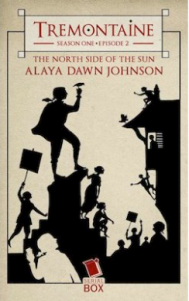
Haven’t subscribed to Tremontaine yet? You can do that at SerialBox.com or buy episodes individually from wherever you get ebooks and audiobooks from. Episode 1, “Arrivals” is free to read now. Tomorrow, November 4, episode 2 “The North Side of the Sun” written by Alaya Dawn Johnson releases.
(Since the WFC party is a Tremontaine-focused occasion, I will only be bringing books to this event if people request them in advance, so if you’re attending and would like to pick up a paperback copy of any of my and Erin’s titles, please let me know by noon on Friday November 5) .


October 30, 2015
Love in Los Angeles: Extra — Gemma & Alex
 Once each month, Erin and I send out a newsletter talking about recent releases, sales, and upcoming appearances. We also include a free story extra. These extras are either scenes actually excised from the books late in editing, or, in most cases, back- or side- stories we’ve alluded before and wanted to flesh out for our readers, or our own amusement. In this case, this was something I typed out on my phone with my thumbs while, in fact, partaking of taco truck fare in L.A.
Once each month, Erin and I send out a newsletter talking about recent releases, sales, and upcoming appearances. We also include a free story extra. These extras are either scenes actually excised from the books late in editing, or, in most cases, back- or side- stories we’ve alluded before and wanted to flesh out for our readers, or our own amusement. In this case, this was something I typed out on my phone with my thumbs while, in fact, partaking of taco truck fare in L.A.
To encourage you to subscribe to the mailing list (which you can do by filling in the box at right or by going here: http://avian30.us8.list-manage.com/subscribe?u=3cd584baddadbcf7b7a80ba98&id=f7f636fc9f) we don’t share those side stories outside of the mailing list until many months later. The next newsletter will go out on November 1, 2015.
This is one is about when Alex and Gemma first get out to Los Angeles, set before the start of Starling.
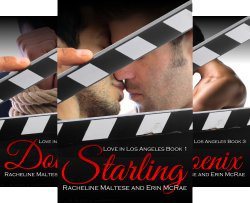 Over many emails and Skype calls Gemma gathered the impression that Alex is athletic, far too brilliant for his tiny hometown, and relentlessly determined to get out of said hometown. It turns out that in person Alex is tiny, disarmingly sly, and completely useless. To the extent that it doesn’t make Gemma want to beat her head into the uneven door jam of their terrible new apartment they pay for in cash, she finds it kind of endearing. But mostly Alex is a disaster.
Over many emails and Skype calls Gemma gathered the impression that Alex is athletic, far too brilliant for his tiny hometown, and relentlessly determined to get out of said hometown. It turns out that in person Alex is tiny, disarmingly sly, and completely useless. To the extent that it doesn’t make Gemma want to beat her head into the uneven door jam of their terrible new apartment they pay for in cash, she finds it kind of endearing. But mostly Alex is a disaster.
It’s not just that he doesn’t have a bank account or understand why she’s so insistent that he open one. It’s that he doesn’t know how to do anything. Gemma has to show him how to use public transit because she’d like to go out and get a drink with him somewhere that isn’t their sketchtastic neighborhood, and it’s not like either of them can afford to take a cab.
Unfortunately, it takes them very little time to discover that nowhere will serve them that isn’t in their sketchtastic neighborhood.
“At least there are taco trucks,” Gemma says glumly as they walk home from another grimly L.A. excursion to a bar filled with other people’s broken dreams.
“I still don’t get why you’re so obsessed with the taco trucks.” Alex is sullen and hunches down even further into his sweatshirt when a guy pedals past and catcalls.
Gemma can’t tell which of them it’s directed at and doesn’t really care. “I am obsessed with the taco trucks, because the taco trucks are what make it safe to walk home,” she points out. “Now what do you want?”
She orders them a chicken enchilada platter to share and chatters with the guys in the truck while Alex sits down at one of the plastic tables set up on the edge of the broken concrete drugstore parking lot on the corner.
“Some of the food trucks have like lines for hours,” Gemma tells him excitedly as they pick at their food.
She got the red sauce, because Alex is still dubious about the green which is more wrong than she knows how to convey even if she doesn’t really care about hip L.A. food trucks. But Gemma is scared that Alex is going to freak out at everything about the city and run back to Indiana, so she’ll humor him on the enchiladas. She doesn’t mind her awful apartment with him, but without him, she suspects she might descend into despair.
“That’s stupid,” Alex says.
“It’s L.A. Everything’s stupid.”
Alex smiles then. “Not us.”
“Nope,” Gemma says. “Not us.” She’s pretty sure she’s lying.


October 26, 2015
Writing, rankings, and ratings: The problem with keeping score
 When I was a kid, my parents were pretty strict about acceptable additions to the decor in my room. While I was eventually allowed to get a cork board where I pinned pictures of crush objects and party invitations, the bulk of the wall space in my room was taken up by two things — books and awards.
When I was a kid, my parents were pretty strict about acceptable additions to the decor in my room. While I was eventually allowed to get a cork board where I pinned pictures of crush objects and party invitations, the bulk of the wall space in my room was taken up by two things — books and awards.
The awards ranged from quite respectable medals in the National French and Latin examinations, to pathetic fare such as Most Improved in Physical Education, to the downright weird — after all, I’d been a participant in the Miss New York National Teen-Ager 1987 pageant. Needless to say, I did not win. Who spells teenager like that anyway?
For the years that I slept under those awards my feelings about them were mixed. Yes, they proclaimed me clever or accomplished or worthwhile or seen, but they also proclaimed me someone who wasn’t — or didn’t think she was — any of those things without them. The awards, in short, were nice when they meant something, but lonely even when they didn’t. I had more of them than party invitations or crush objects on my cork board. I didn’t get many of the first, and my parents judged me a lot for the second. I learned to keep what I loved secret, and that included loving myself.
Three decades later as a professional writer and awkward human being on the Internet, I’m still learning the lessons of those awards, consigned now to a scrapbook living in a closet.
Awards and rankings can seem like a big part of life for an author. There are Amazon rankings to check (except you don’t need to), Goodreads star ratings to keep tabs on (you don’t need to do that either), contests to enter (totally optional, by the way), and awards to win (completely not live or die).
Let’s face it, awards are fun. They make us feel special, offer a marketing boost, or just give us a sense of hope. Sometimes they provide us an excuse to dress up. Often, they provide us a list of great books to add to our To Be Read piles.
But awards (and ratings and rankings) can also make us crazy. I’ve been upfront about my own obsessive and unhelpful interest Amazon rankings in the past. But I have to say, it doesn’t stop there — for me or lots of other people in the genres in which I play. And the reality is, we’re all being ridiculous.
Yes, more reviews on Amazon on super helpful (please, honestly review the books you read, it does help authors!). But our belief that it somehow actually matters if our reviews average out to a 3.82 or a 3.92 probably isn’t, because it probably doesn’t. A 5* review isn’t going to suddenly make me a best-seller; a 1* review isn’t going to tank my book.
More and more, as I recognize my own review obsession, which I see mirrored by tons of other authors, as unhealthy and unnecessary, I also see it as the result (at least in my case) of gendered training to seek approval; I find it hard to believe I’m the only one.
But the people this does the biggest disservice to isn’t ourselves (that’s between us and our therapists), but readers and potential/aspiring writers.
First, the readers. Because, let’s say it again, reviews are for readers. And when we obsess over reviews, we get in the way of people who might leave reviews — often entirely by accident. And if we get in the way of reviewers, we make it harder for readers to find the right books for them. We have to accept, not only that reviews are for readers, but that readers are extremely savvy and take reviews on both positive and negative extremes with the appropriate amount of salt.
Secondly, our scorecard obsession does real harm to new and aspiring writers. Who on earth wants to come into this game facing the message that their book will fail if they have less than 100 reviews on the day they launch? Or that if they don’t have an average of at least 4* they are doomed? Or that if another writer they know has a 3.92 to their own 3.87 on Goodreads it means they and they work are less worthy of existence?
Do I post great reviews when I get ’em in social media? You bet. Do I privately grouse about some of the less enthusiastic ones? Sure. But when I do either, am I being anything other than a girl who slept under a bunch of silly school awards for years and years in hopes that would make her a real person? Not so much.
And that sucks. I don’t want to be that girl any more. She was lovely and interesting despite not knowing it, and her wounds have helped me find the types of stories I want and love to write. But being her is tiring, and lonely, and weird, and annoying. And it’s okay for me to be done with her now.
It’s also okay for you to be done with your personal version of her too.
Writing is not a race. It is not a test. And it is most emphatically not a competition. It is not about quantitative measuring (ratings and rankings) of other people’s qualitative opinions (reviews).
Tell your story. Engage with the ratings and rankings and awards to the extent that data helps you and that you find it enjoyable. As soon as it stops helping, the second your words feel paler without it, go make some more words, or take a break. Or realize you’re not alone in this form of self-torture. And then move on.
As writers, the problem is never awards, reviews, and rankings, but how we treat them. They’re fun. They’re a nice to have. They are designed, largely, to promote genres and industries and sales. But no author actually lives and dies by them. And as writers, we need to start believing that and acting like that.



